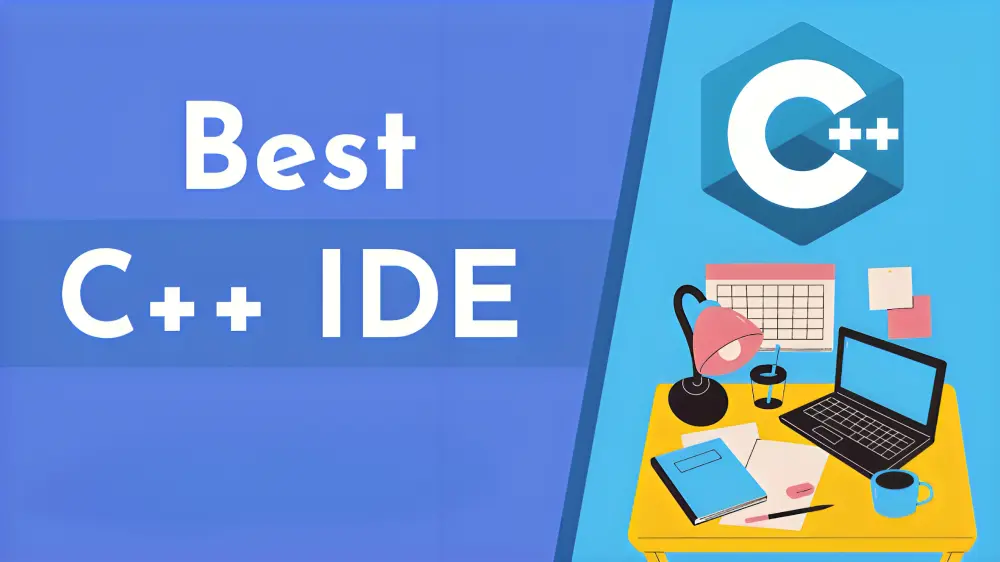Choosing the right Integrated Development Environment (IDE) for C++ programming can make a big difference in your productivity and coding experience. With so many options available, it’s critical to understand the features and capabilities that meet your specific needs. Here’s a guide to navigating the landscape of Best C++ IDE and making an informed choice.
Here’s the list of Best C++ IDE:
C++ Builder
Cross-platform C++ Builder is one of the best C++ IDE and proprietary IDE (with a free trial) from Embarcadero, the same company that produces Delphi Pascal software. It has a Clang-optimised compiler with easy access to the Boost libraries, database management, version control integration, continuous integration, and a large selection of available plugins. C++ Builder has a cross-platform debugger and quick compilation times. On iOS and Android, it even facilitates native mobile app development.
Code: Blocks
For C/C++ development, Code: Blocks is a cross-platform, free, and open-source integrated development environment (IDE) that offers a range of features such as code coverage, debugging, profiling, compiling, and code analysis. It is renowned for its exceptional performance, fully functional breakpoint support, and user-friendly interface (tabs, drag and drop). It has a robust ecosystem of plugins created by the Code::Blocks development team and community.
Qt Creator
Built on the well-liked and feature-rich Qt toolkit, Qt Creator is a cross-platform C++ integrated development environment (IDE) that is available for purchase (though a free trial version is also available). A thriving ecosystem of design and development tools based around the Qt toolkit is available to Qt Creator developers in addition to standard IDE features like compiling, debugging, code completion, profiling, and refactoring.
Dev C++
Dev C++ is a feature-rich free C++ integrated development environment, as the name implies. Even with its extensive feature set, Dev C++ is limited to supporting Windows operating systems. It still supports GCC-based compilers such as Cygwin and MinGW, despite this limitation. It also features a tool manager, find and replace options, CVS support, code printing, syntax highlighting, code compilation, international language support, and an integrated debugger (via gdb).
Atom
Many people believe that Atom is the best integrated development environment (IDE) for C++. It is an open-source, flexible editor that supports multiple programming languages and is available for Windows, Mac, and Linux. It has many features, including auto-completion, a package manager, find-and-replace, a file browser, and multi-language support.
NetBeans
For Windows, Mac, Linux, and Solaris users, NetBeans is an integrated development environment (IDE) that is free and open-source. Its features include syntax highlighting, refactoring, code folding, and bracket matching. Strong platform support from NetBeans makes it possible to complete code more quickly and provides development tools for remote hosts. This makes it easier to create, debug, and carry out projects right from the user’s system.
CodeLite
With features like a class browser, static code analysis, project management, code refactoring, profiling, debugging, code completion, and compiling abilities, CodeLite is an open-source Integrated Development Environment (IDE). The Rapid Application Development (RAD) tool in this IDE makes it easier to create widget-based applications. CodeLite is an incredibly lightweight and user-friendly tool that can be used for debugging and testing purposes. It works with a number of operating systems, including FreeBSD, Mac, Linux, and Windows.
Xcode
Apple’s in-house IDE, Xcode, is designed for development on macOS, iOS, watchOS, and tvOS and is freely accessible. It is also compatible with C++ application development, making it a tool of choice for Mac developers. With crucial features like syntax highlighting, code completion, an interface builder, and an integrated debugger to improve development efficiency and streamline the coding process, this IDE stands out in the C++IDE development market.
CLion
JetBrains developed CLion, a development environment specifically designed for the C and C++ programming languages. Professional developers working on complex, large-scale projects will benefit from this IDE. Since CLion is proprietary software, obtaining a licence is not free. It has features including intelligent code analysis, code refactoring, and simple debugging. But CLion uses a lot of resources, which could strain RAM and CPU. It works with Windows, Linux, and macOS.
QtCreator
QtCreator is an open-source tool that novice developers can use for free, but more experienced programmers need to purchase a commercial licence. It allows for the development of applications for desktop, mobile, and embedded platforms and is compatible with Windows, Linux, and macOS. Linux uses the C++ compiler from the GNU Compiler Collection, while Windows uses MSVC or MinGW by default and can incorporate the Microsoft Console Debugger if it is compiled from source.
Conclusion
Choosing the Best C++ IDE development is essential for maximum coding productivity. Every IDE has its own strengths, ranging from resource-hungry CLion to flexible Atom, robust debugging in Xcode, and extensive plugin support in Code::Blocks. By being aware of these differences, developers can make sure they select the IDE that best fits their workflow preferences and project requirements.





